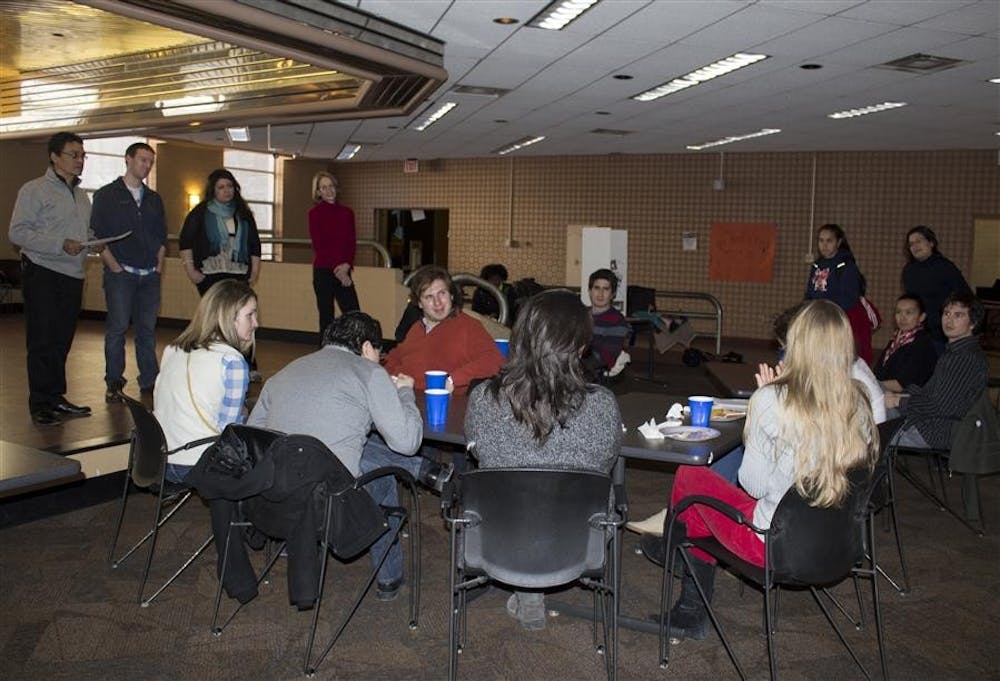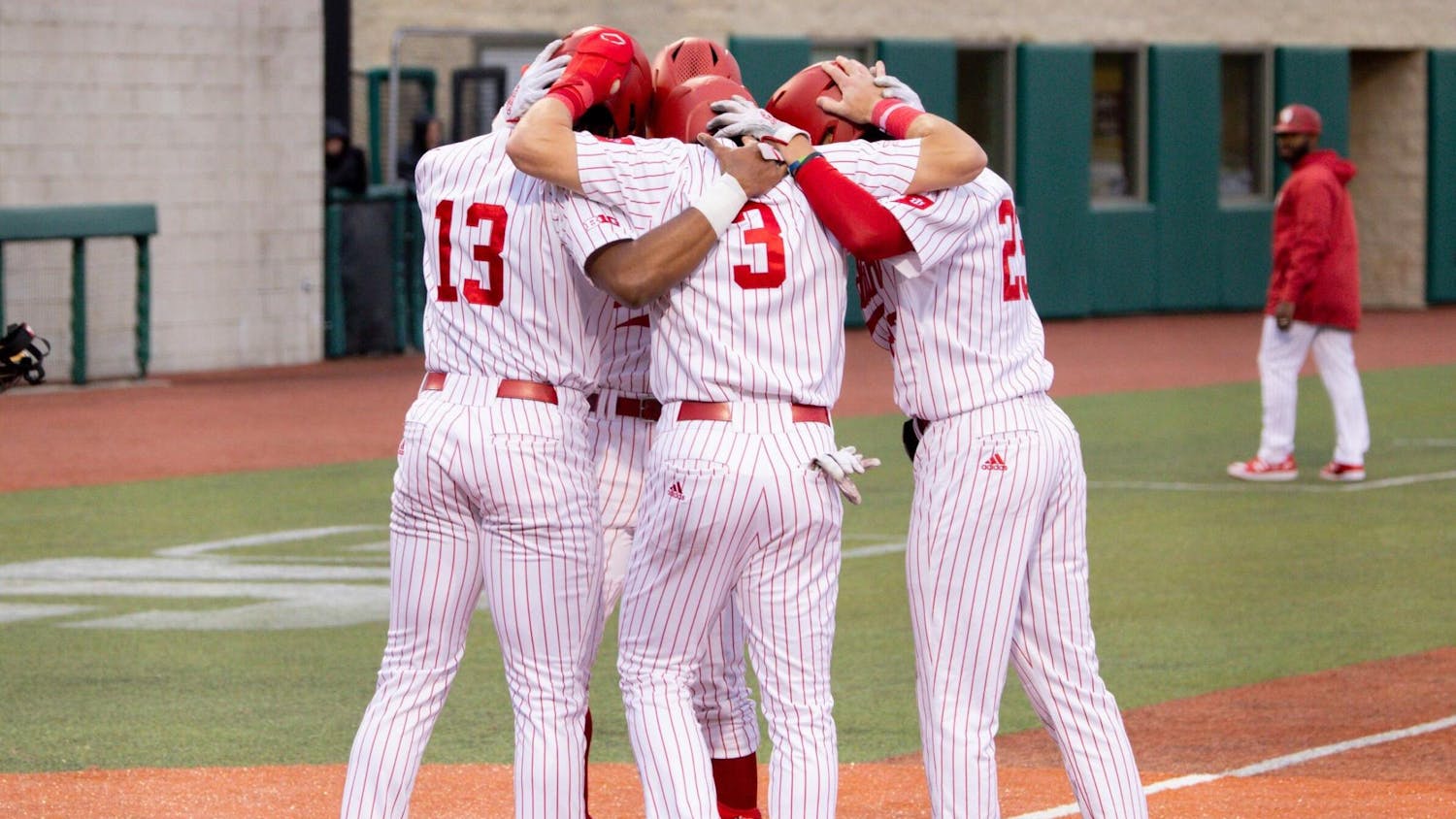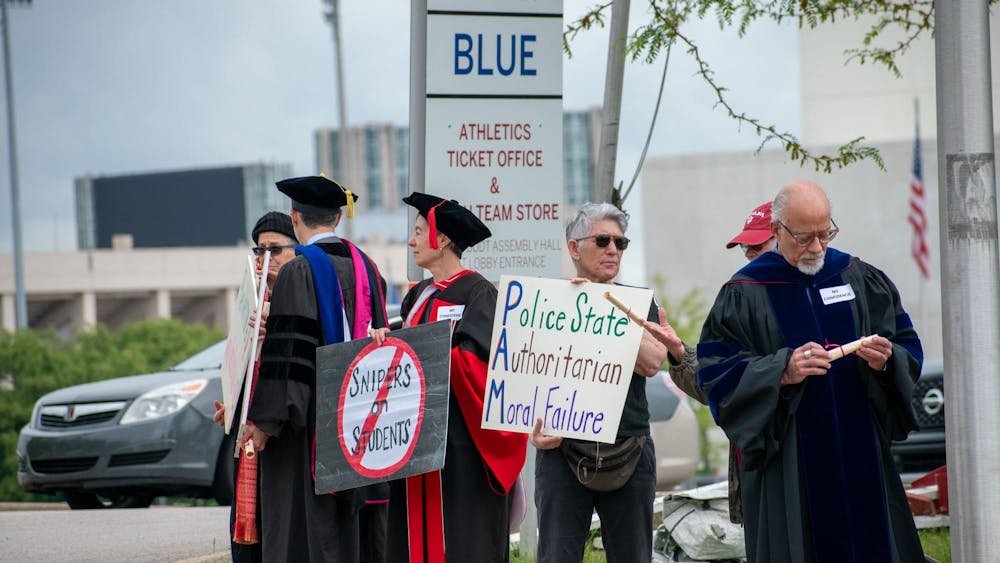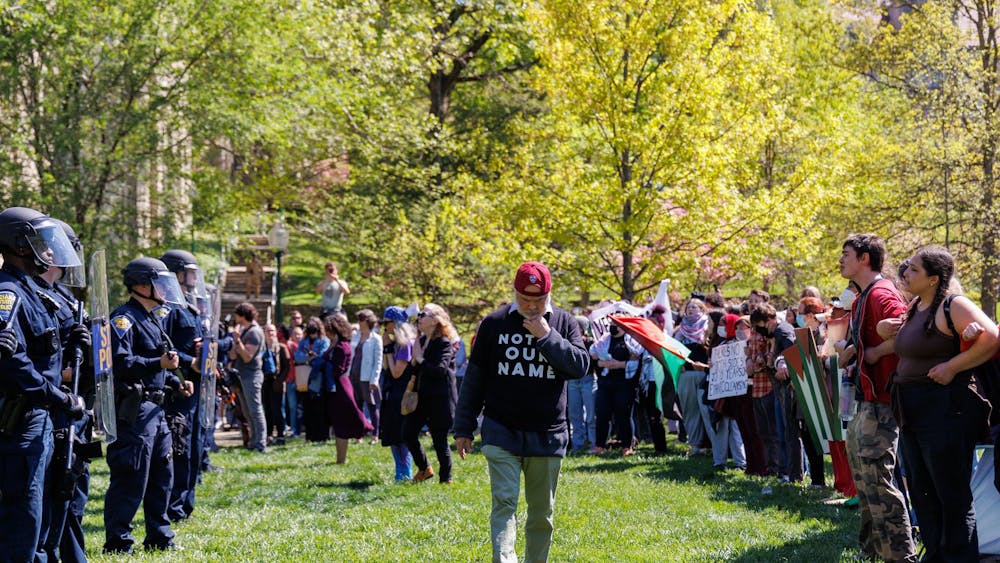A year ago, the International Latin American and Spanish Students Association had its coffee hours in the Leo R. Dowling International Center. However, ever since the center closed last summer, international organizations such as ILASSA plan their events and meetings in residential halls around campus.
Last Friday, ILASSA began the semester with their usual coffee hour, which included enchiladas and flautas from El Norteno, Latin American music and an introduction by the executive board members.
ILASSA President Jose Toledo stated that the main purpose of the organization is to create an environment where every Latin American and Spanish student has the opportunity to contribute to the IU community in their own way.
“The idea is to promote and create this volunteer feeling in all our members,” Toledo said. “The second idea is to create the opportunity to open different task forces, like environment work, social work, academic issues, human rights and gender equality.”
Sophomore Jeannette Heusca, the vice president of ILASSA, said that she personally joined because of the connections she gained while learning about different cultures. She said she wants to get the word out about the organization so others could feel welcome to join as well.
“My parents are from Mexico,” Huesca said. “I grew up here in the United States and you kind of get disattached from your culture, and knowing from other cultures in Latin America, everyone has their own culture. You can learn so much from different people. You would think that since you speak the language it would all be the same, but it’s not.”
After Toledo, Huesca and other executive board introduced themselves and the organization in Spanish, Toledo explained why they were in Teter Quad : they don’t have a permanent residence place.
“It’s difficult for us,” Toledo said. “The Leo Dowling International is no more, they closed down. We don’t have physical space to meet.”
The international student organizations are now located in the Office of International Services in the Poplars Building. Toledo stated that if international students want to have a meeting or an event, they have to rent rooms in the residential halls. Toledo said he feels the center was closed due to the University’s efforts to equate education with business.
“For me, it’s sad that education equals business, and when education is equal to business, you have this difficult situation,” Toledo said. “More students is business, but you don’t have no place for them.”
Toledo said he believes international organizations like ILASSA need to have more discussions about this issue.
“We need to not only have happy hours or coffee hours but we need to speak about our reality for students and because we are a minority,” Toledo said.
For some, this coffee hour was the first time they heard the Leo R. Dowling International Center had closed. When the topic was brought up, many people in the room joined the discussion.
“I think it came as a surprise to a lot of people,” group member Alexandria Toledo said. “They didn’t know about it closing over the summer, so some people are pretty upset about it and they would like to see a space on campus for international students to meet — if not there, then somewhere else.”
Alexandria Toledo said she thinks that students aren’t sure what measures to take
concerning the closing of the center.
“I think a problem is that people don’t really know what happened, or they aren’t opportunities to show that, or international students might not know the system for doing advocacy or for kind of protesting the decision,” Toledo said. “We know that (the center) is missed, so maybe we could make that public.”
Mintzi Martinez-Rivera, a Ph.D. candidate and a former co-president of ILASSA, remembers the coffee hours held at the Leo R. Dowling International Center.
“Everybody knew that every Friday of the month, there was always going to be a coffee hour between 4 and 6, and all the student organizations would have a coffee hour. The idea of the coffee hour was to have some form of cultural and educational event…and you would have food and music education”.
Martinez–Rivera said without the international center, all the student organizations are scattered throughout the campus without a central place to gather and learn about different cultures around the world. Even though she said she sees this as a great loss for IU’s international community, Martinez-Rivera said she believes that last Friday’s coffee hour was beneficial.
“Hopefully for ILASSA this would be a good jumping point for having the strength we once had when we were in the international center, ” Martinez-Rivera said.
Latin American and Spanish students meet for coffee hour

Get stories like this in your inbox
Subscribe





